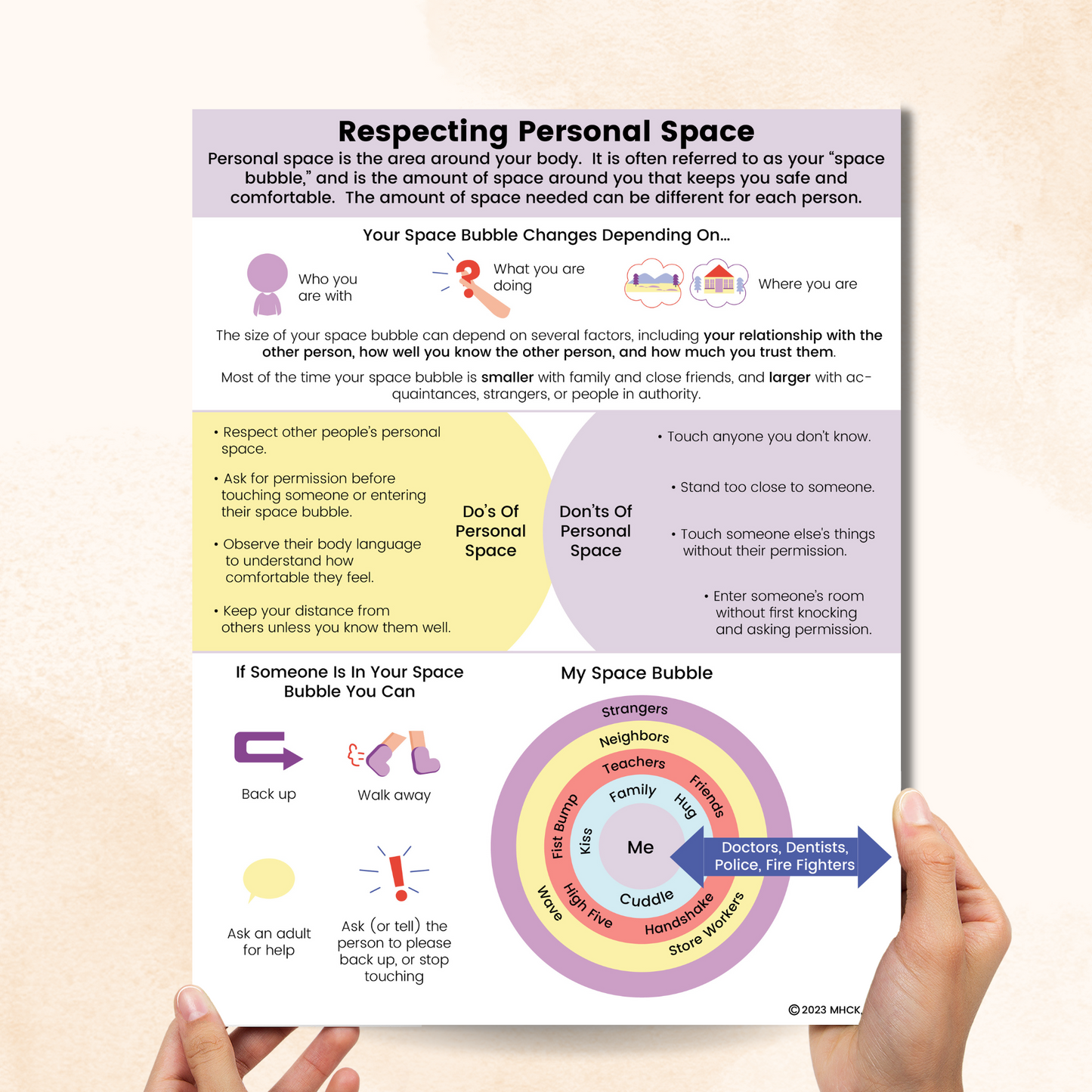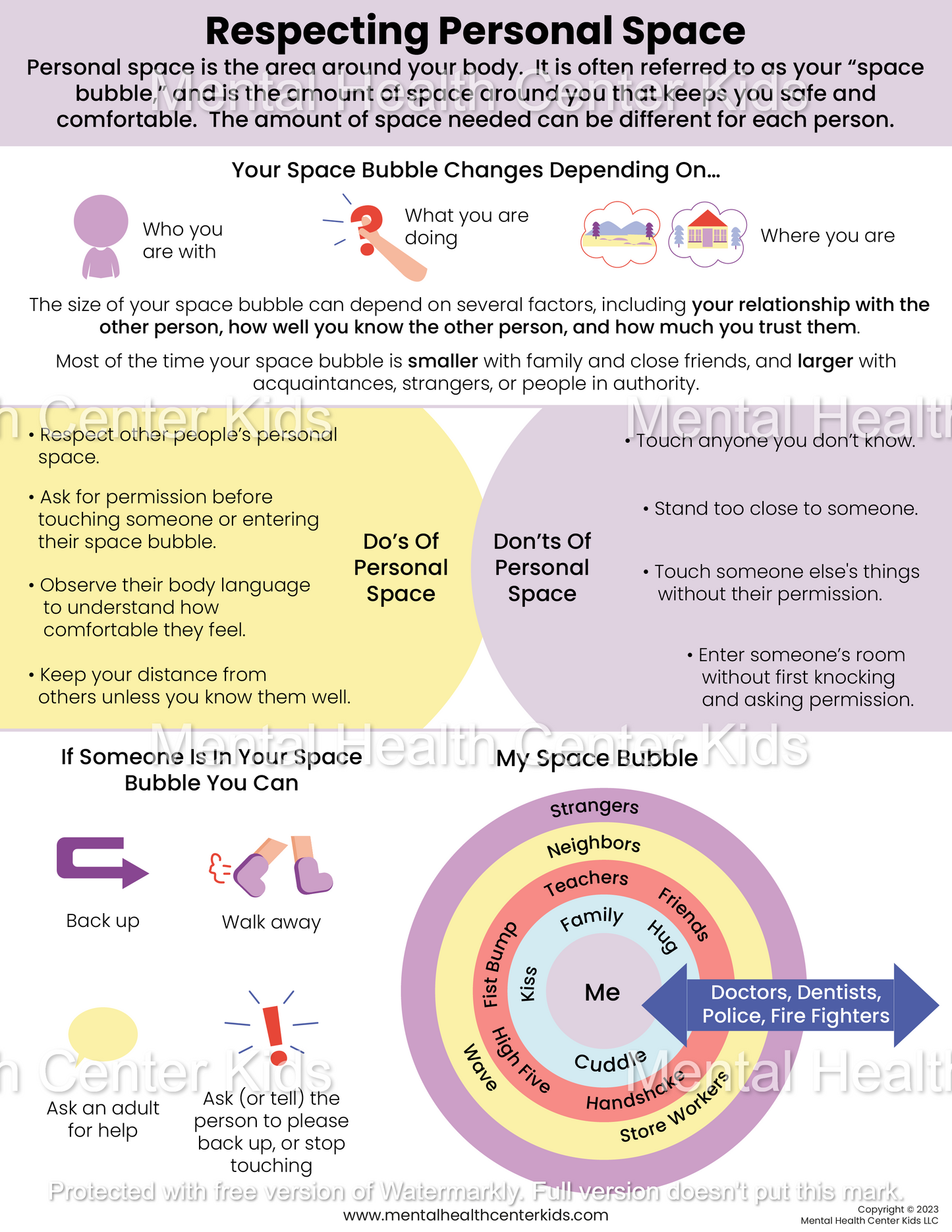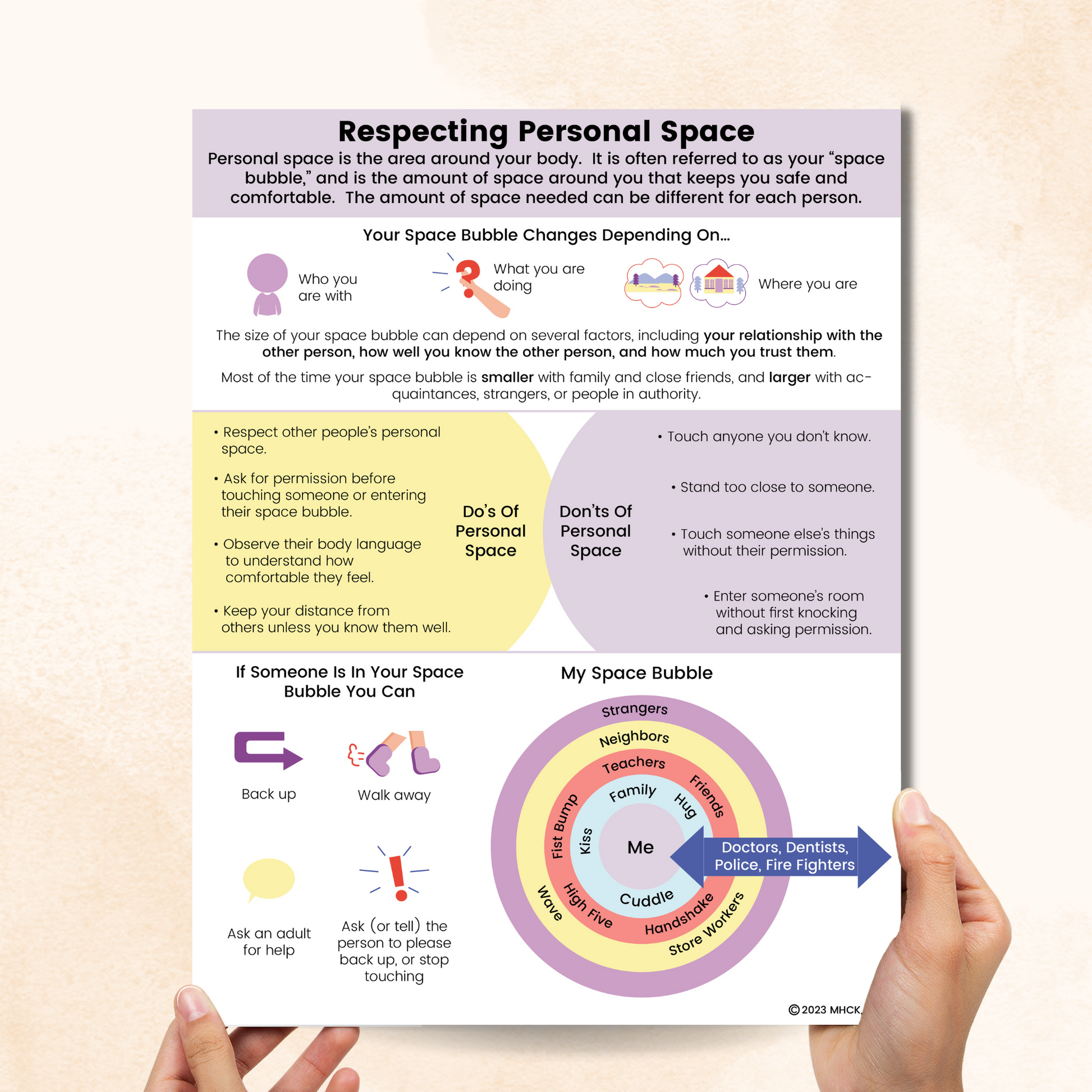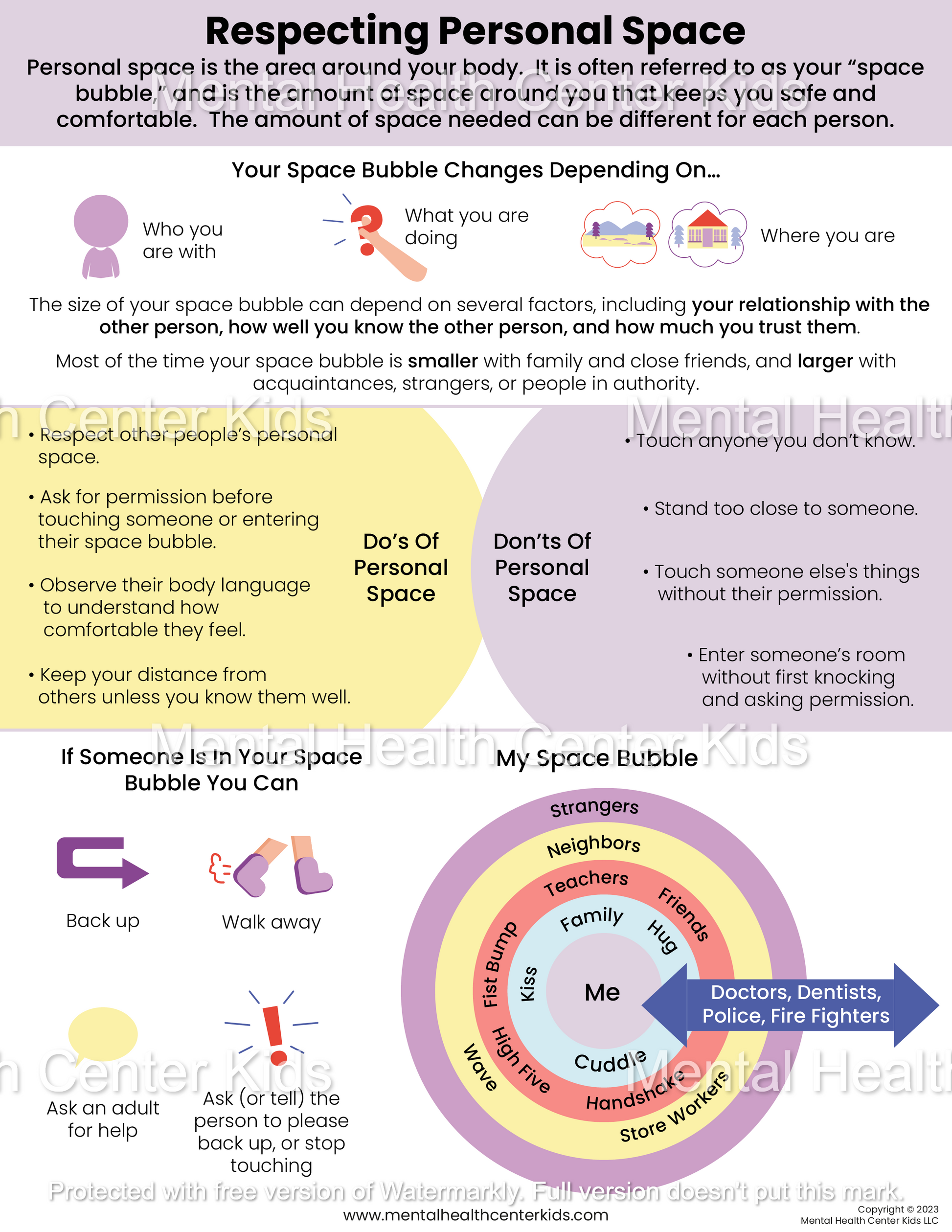Respecting Personal Space



Respecting personal space means recognizing and honoring other people’s physical boundaries. This requires having an awareness of others’ comfort levels. For those who are not accustomed to it, it may be challenging at first, as they might not notice how close they are to someone or how their actions affect them.
The Respecting Personal Space handout helps young people understand their own boundaries and those of others. It explains how personal space can vary in different situations, provides a list of do's and don'ts, and offers tips for handling situations when someone gets too close. It also outlines appropriate distances for interacting with different people.
Learning about personal space offers several benefits for kids and teens, such as better social skills, reduced discomfort in various situations, and increased mutual respect. By practicing these skills regularly, they will find it easier to recognize and maintain appropriate distances.
To support this learning process, caring adults can set up activities that explore body language and the signs of comfort or discomfort. They can also share our Respecting Personal Space worksheets, which use the My Space Bubble illustration to help kids better understand the topic.
*This item is an instant digital download. A link to download your files will be emailed to you once payment is confirmed.
Want more resources like this? Check out our full catalog of social skills worksheets and handouts.
References:
- Atreya, Prerana. (2024). Teaching Children Consent Skills Through the Lens of Personal Boundaries and Bodily Autonomy. University of the Pacific, Thesis. https://scholarlycommons.pacific.edu/uop_etds/4270
- Paulus, M. (2018). Preschool children’s and adults’ expectations about interpersonal space. Frontiers in Psychology, 9. https://doi.org/10.3389/fpsyg.2018.02479
- Stiles, A. S., & Raney, T. J. (2004). Relationships among personal space boundaries, peer acceptance, and peer reputation in adolescents. Journal of Child and Adolescent Psychiatric Nursing, 17(1), 29-40. https://doi.org/10.1111/j.1744-6171.2004.00029.x
- Instant digital download
- File: PDF
- Size: 8.5" x 11"
This is great and easy to explain to kiddos.
Great tool for teaching on boundaries. Love using as a guide in white board sessions!




